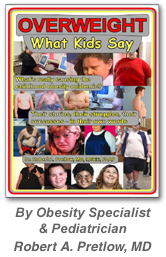An Interview With Raj Patel

Raj Patel is the author of Stuffed and Starved: The Hidden Battle for the World Food System. Sadly, this interview with Patel was conducted not by us, but by Onnesha Roychoudhuri. Her work appears via Alternet, publisher of this piece, and in Salon, Mother Jones, and many other major publications.
Patel’s book intends to stir up our anger about a whole assortment of things: The tight control exercised by a very small number of corporations. The tendency of profits to accumulate in the same places as power. The poverty of the once-bountiful American Midwest. The fact that the people who grow the food and the people who eat the food are both getting ripped off, while the middlemen are making out like bandits.
He’s angry about how the obesity epidemic has managed to reverse the life expectancy trend, and how choice has been reduced to the lesser of two evils. The way we choose food, he says, comes from abnormal roots. For instance, consider how much the typical supermarket resembles the maze in a laboratory rat experiment. Millions of dollars and a whole lot of ingenuity have gone into designing these palaces of manipulation for reasons inimical to our health.
He talks about food deserts, defined as areas where fresh produce is nowhere to be found. Although we tend to think of the countryside as an overflowing cornucopia of vegetables, rural America is turning into one big food desert. Inner cities are food deserts too, where you can get 99 flavors of chips, but a raw potato? Forget it. Here’s a great Patel quotation:
The trouble is that with a lot of the development industry, the game is to try and simulate what poor people think rather than actually listening to what they have to say.
Does that sound familiar? Dr. Pretlow feels the same way about the childhood obesity epidemic. That’s why his book is titled Overweight: What Kids Say. It’s the “what kids say” part that matters — the idea of actually asking them to speak up, and then listening.
A couple of years ago, I met a Dutch woman at a mutual friend’s home. She was amazed by the amount of food on offer at this potluck buffet. I’m not sure whether all Europeans eat more sparingly, or just the ones she knows, but there is no doubt that munchstyles differ by nationality.
Raj Patel is alarmed by the effects that American eating habits have on other countries. Did you know that in Mexico, the closer a town is to the U.S. border, the more obese its teenagers are? Americans also tend to believe that shopping cures everything. Patel says,
There is a particularly American fantasy that we can together create a better world by shopping. It’s absolutely a case of thinking we can go to Whole Foods, choose the right thing, shop here, pay for this and all of a sudden we will lift the righteous above the impure.
Well, it doesn’t work that way. We need to get politically involved, and put a stop to the basic problems. When it comes to food, says Patel, there is no such thing as a free market. He rejects the idea of self-correcting market conditions, because the game is rigged. In Patel’s view, what we think of and call the free market was actually born of conquest and imperialism. He points out how in the 1800s, “the golden age of liberal capitalism,” 13 million people died of starvation worldwide.
Patel thinks we have been hypnotized into an almost schizophrenic belief system that accepts two opposite things at the same time. The controllers of our minds have convinced us that while the sweetener industry may be guilty of many things, it is still our own personal responsibility to summon up enough will power to remain un-poisoned, and if we can’t stand up against the flood tide of sugar and high fructose corn syrup, it’s our own fault.
Patel sees through this, and decries the individualizing of obesity and health problems. He says we need to confront the sugar industry. Backing his ideas with passion, he uses language from the George Carlin dictionary. For instance, he says of the food corporations,
They have managed to convince us that most of the **** that we eat every day is food when it isn’t. It’s a profit for them and too often a poison for us.
Your responses and feedback are welcome!
Source: “What Michael Pollan Hasn’t Told You About Food,” AlterNet, 05/15/08
Image by Benimoto, used under its Creative Commons license.

